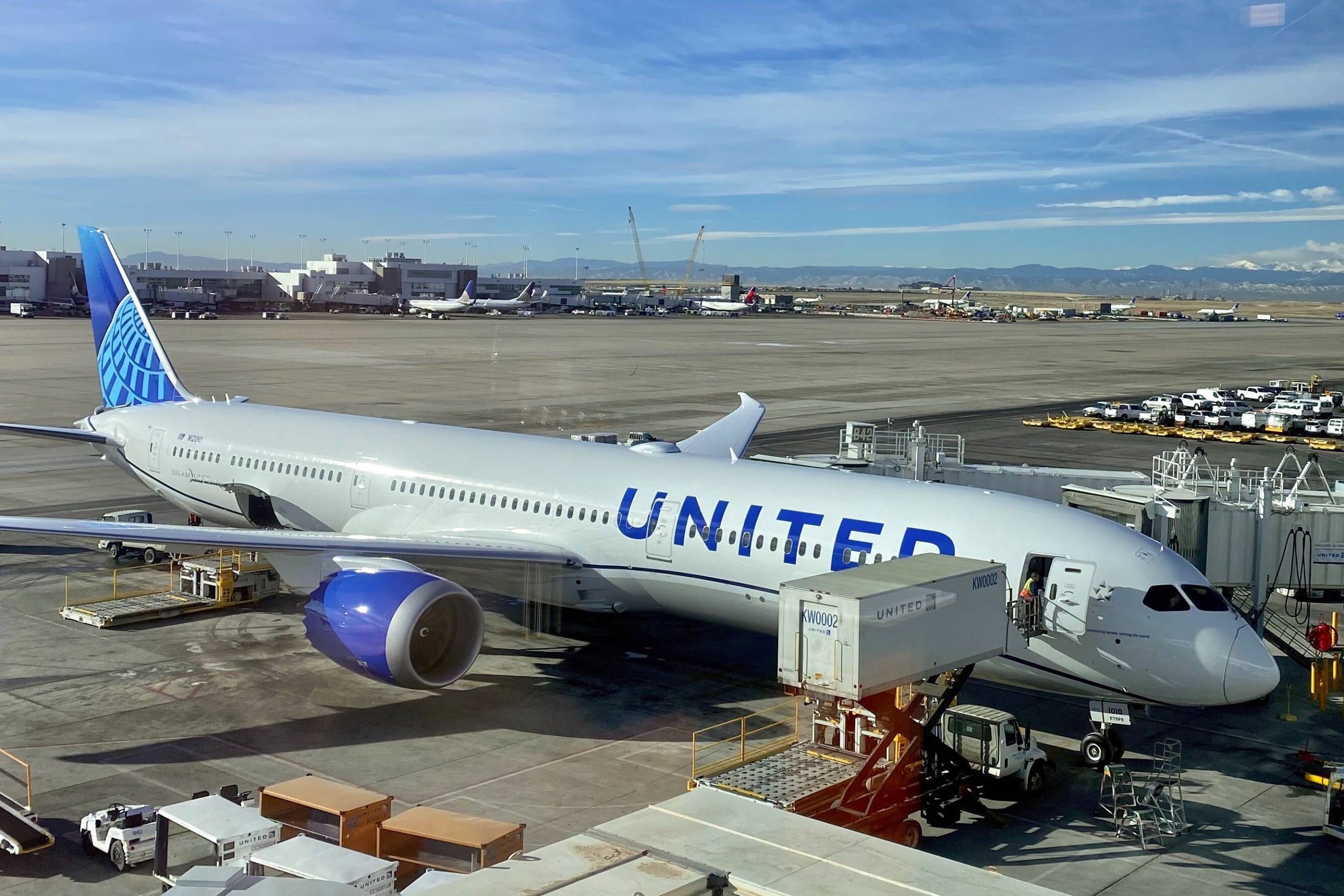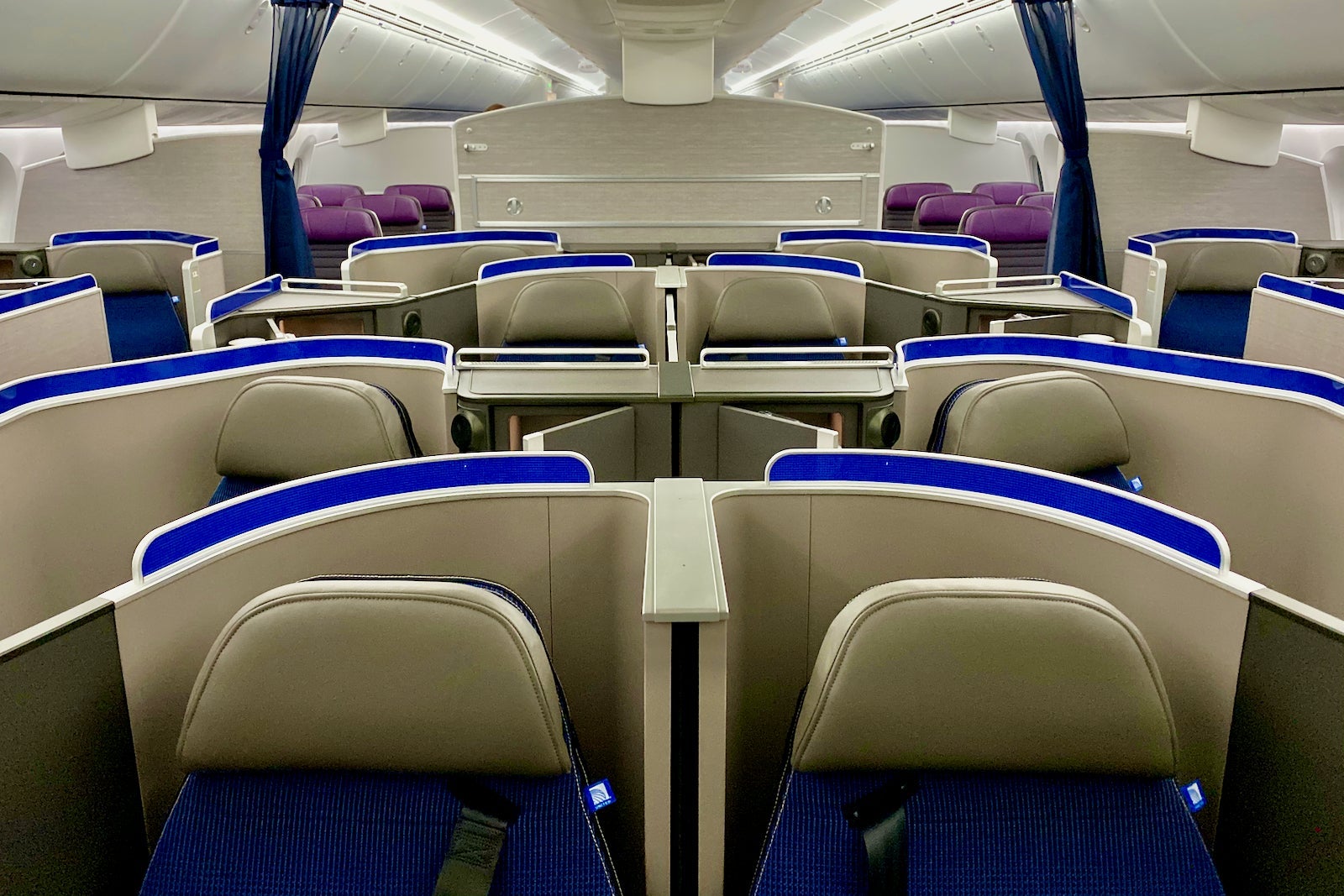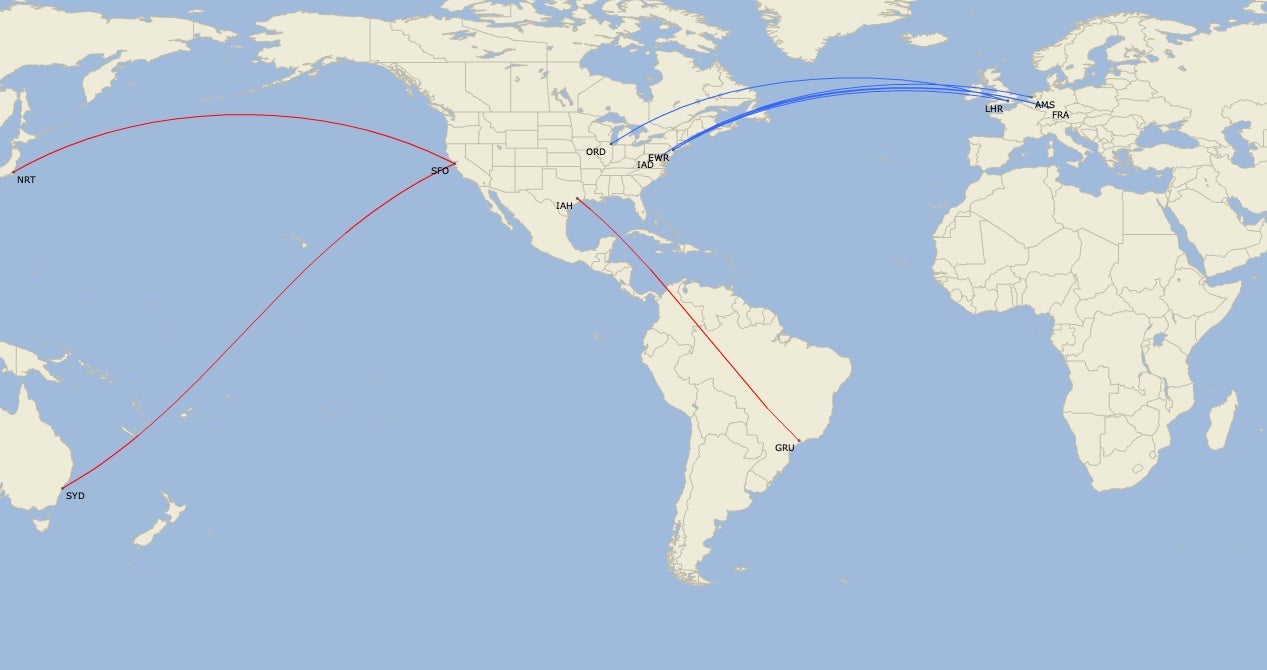United Airlines sees Boeing 787 as new long-haul 'workhorse,' orders 7 more Dreamliners
United Airlines is making some necessary changes to its long-haul fleet as people continue to avoid unnecessary travel -- especially internationally -- amid the coronavirus pandemic.
The Chicago-based carrier is relying on its efficient Boeing 787 fleet to fly its pared back long-haul schedule for the "foreseeable future," United senior vice president of flight operations Bryan Quigley told pilots in an internal memo on May 2 that was viewed by TPG.
In other words, the Dreamliner is United's new long-haul "workhorse," as Quigley put it.
Get Coronavirus travel updates. Stay on top of industry impacts, flight cancellations, and more.

This is a significant shift for United whose international fleet has long depended on the Boeing 777. The launch operator of the 777 in 1995, the airline has 96 of the wide-body jets today, a fleet plan dated April 9 shows. It flies nearly half as many 787s, with 12 -8s, 28 -9s and 12 -10s in its fleet at the beginning of April.
However, the 777 is both larger and less efficient than the 787. Those are both major liabilities in a COVID-19 operating environment where few people are traveling and cost savings are paramount.
"Our ability to weather this storm will be measured by how quickly we cut costs and preserve cash," said United chief financial officer Gerry Laderman during a first quarter earnings call on May 1.
Related: United sees positive uptick in flight searches, but only for travel next year
More Dreamliners

In the first quarter, United firmed options for seven Dreamliners in something of a testament to the long-term importance of the 787 to its wide-body fleet, a quarterly financial update released Monday shows. The jets, all larger 787-10s, will be delivered in 2021.
The airline ordered the jets before the COVID-19 crisis kicked into high gear for airlines in early March, TPG understands. Laderman said during the call that it would be "financially impractical" to reschedule the deliveries at this point.
United configures its 787-10s with 318 seats: 44 Polaris business class, 21 Premium Plus, 54 Economy Plus and 199 economy. Its 787-9s, which it just began reconfiguring with Polaris seats, have up to 257 seats: 48 Polaris, 21 Premium Plus, 39 Economy Plus and 149 economy.

United is due to take delivery of eight more 787-9s this year -- after taking two in April -- and eight -10s in 2021. The carrier will operate 71 Dreamliners by the end of next year.
United has yet to decide whether it will use the new 787s to replace older jets in its wide-body fleets, executives said. The carrier is waiting for a firmer view of the recovery from the pandemic to finalize a fleet plan.
Related: United slashes Boeing 737 MAX deliveries amid coronavirus downturn
Flying changes
All of the international long-haul routes that United will operate in May will be flown with 787s. The -9s will go to Asia and South America, and the -10s to Europe, according to Cirium schedules.

The only exceptions are a Boeing 737 flying between Guam (GUM) and Tokyo Narita (NRT), and a Boeing 767-300ER flying between Houston Intercontinental (IAH) and São Paulo Guarulhos (GRU) for just the first three days of May, Cirium shows.
Quigley outlined United's initial international flying plans as it comes back from the crisis. 767 pilots will be consolidated to Chicago O'Hare (ORD), Houston and Newark (EWR), and 777 pilots to Newark and San Francisco (SFO). 787 bases will remain open in all of the airline's hubs except Los Angeles (LAX).
Related: United may change route map post-coronavirus, says no hub is 'sacred'
The closure of United's 787 pilot base in Los Angeles raises questions over the future of its Southern California hub. Already considered among its weakest hubs -- Cranky Concierge founder Brett Snyder has called it the "most up for grabs" on United's map -- all of the airline's long-haul routes from LAX were flown with Dreamliners prior to the pandemic, according to Cirium.
"Everything is on the table in terms of what we look like," United president -- and soon CEO -- Scott Kirby said of the carrier's potential post-COVID restructuring on May 1. "While we don't have plans to close hubs, when you say everything is on the table we mean everything — there are no sacred cows."
United is currently planning for capacity cuts of as much as 90% through June. Any service resumptions are dependent on an uptick in the number of people flying.
Related: How will airlines rebuild their route maps after the coronavirus?
TPG featured card
at Capital One's secure site
Terms & restrictions apply. See rates & fees.
| 5X miles | Earn 5X miles on hotels, vacation rentals and rental cars booked through Capital One Travel |
| 2X miles | Earn unlimited 2X miles on every purchase, every day |
Pros
- Stellar welcome offer of 75,000 miles after spending $4,000 on purchases in the first three months from account opening. Plus, a $250 Capital One Travel credit to use in your first cardholder year upon account opening.
- You'll earn 2 miles per dollar on every purchase, which means you won't have to worry about memorizing bonus categories
- Rewards are versatile and can be redeemed for a statement credit or transferred to Capital One’s transfer partners
Cons
- Highest bonus-earning categories only on travel booked via Capital One Travel
- LIMITED-TIME OFFER: Enjoy $250 to use on Capital One Travel in your first cardholder year, plus earn 75,000 bonus miles once you spend $4,000 on purchases within the first 3 months from account opening - that’s equal to $1,000 in travel
- Earn unlimited 2X miles on every purchase, every day
- Earn 5X miles on hotels, vacation rentals and rental cars booked through Capital One Travel
- Miles won't expire for the life of the account and there's no limit to how many you can earn
- Receive up to a $120 credit for Global Entry or TSA PreCheck®
- Use your miles to get reimbursed for any travel purchase—or redeem by booking a trip through Capital One Travel
- Enjoy a $50 experience credit and other premium benefits with every hotel and vacation rental booked from the Lifestyle Collection
- Transfer your miles to your choice of 15+ travel loyalty programs
- Top rated mobile app


